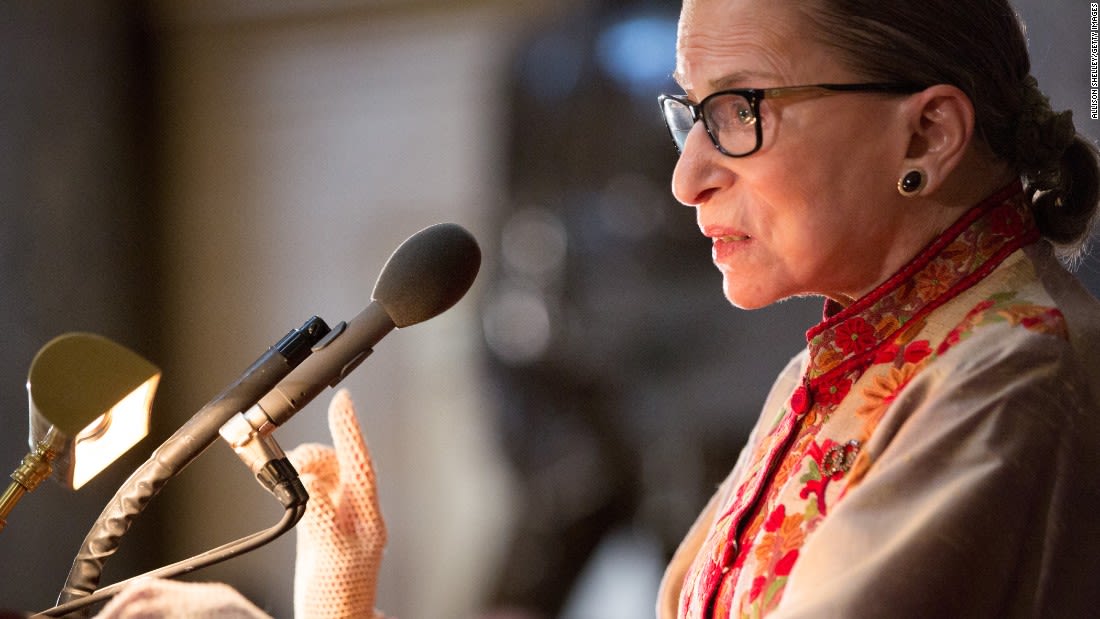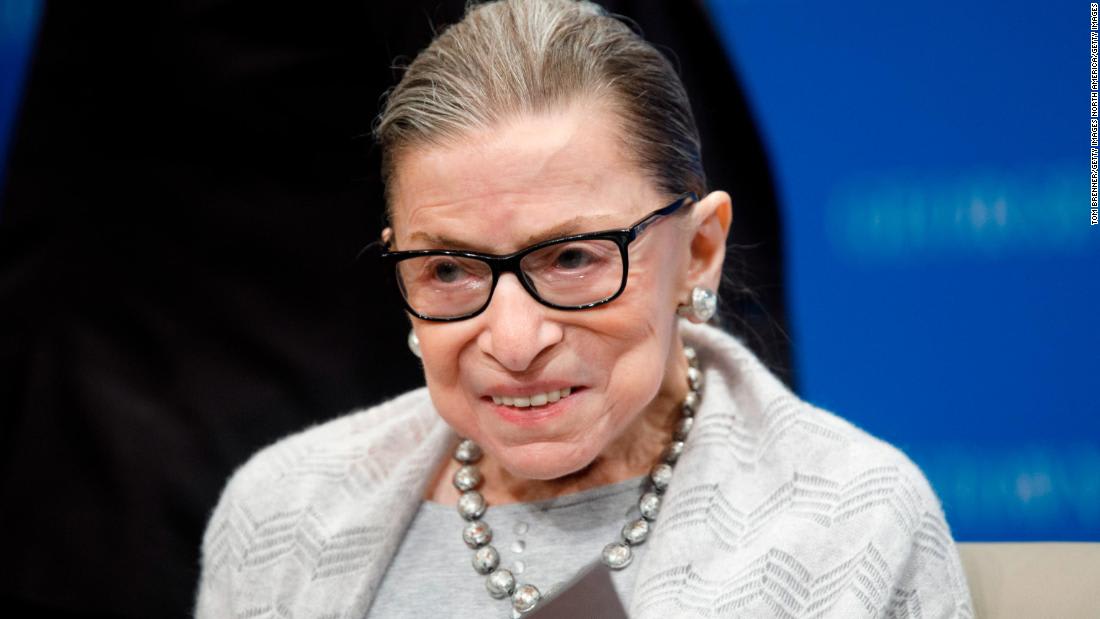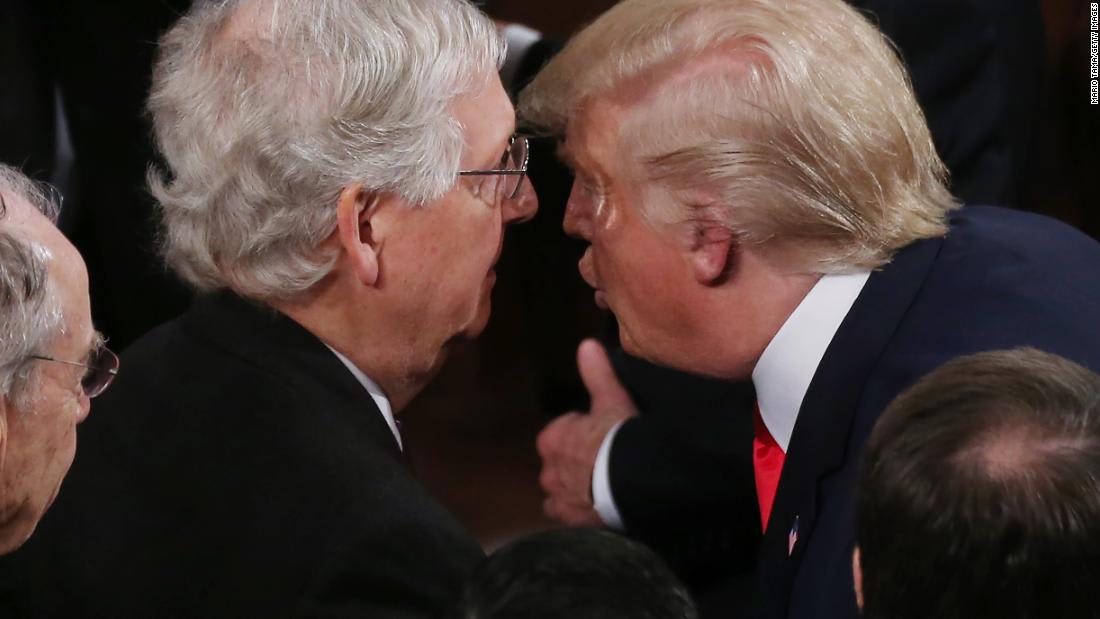What we know about Ruth Bader Ginsburg's death and the brewing battle over her successor
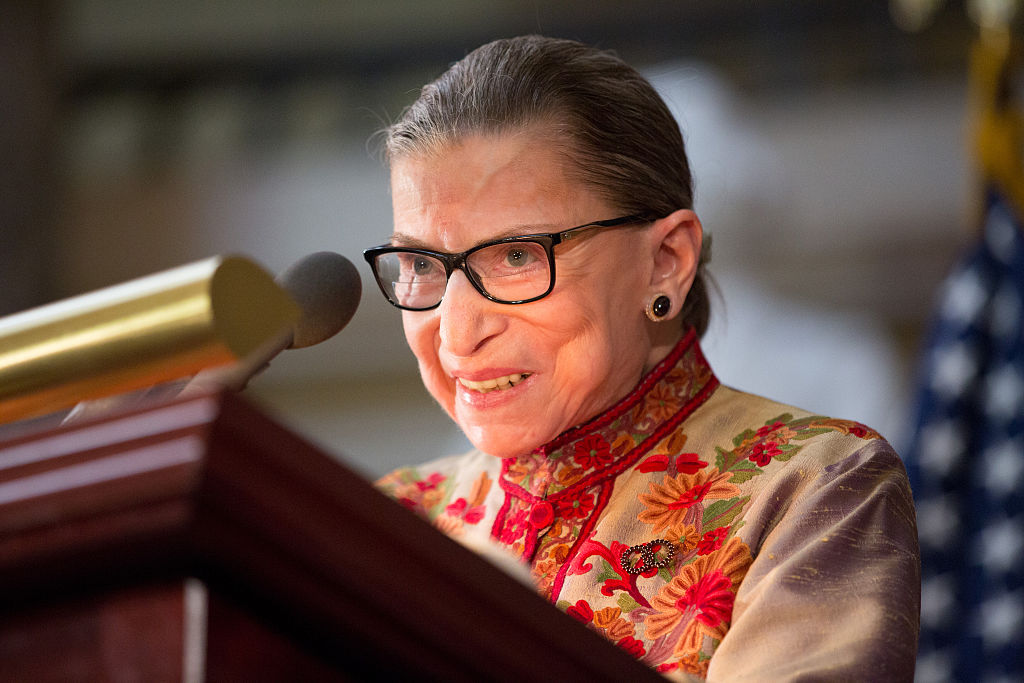 Justice Ruth Bader Ginsburg speaks at an annual Women's History Month reception in the US Capitol building in 2015. Allison Shelley/Getty Images
Justice Ruth Bader Ginsburg speaks at an annual Women's History Month reception in the US Capitol building in 2015. Allison Shelley/Getty ImagesTributes are flowing in for Ruth Bader Ginsburg, the second woman on the US Supreme Court and a titan of the American left, who delivered progressive votes on the defining issues of the past three decades and won acclamation from devotees far beyond Washington D.C. in the process.
But Ginsburg's death has also transformed the presidential election and set up a monumental battle on Capitol Hill, as senior Republicans signal their intent to hold a vote on a successor just four years after blocking President Obama's final Supreme Court nominee.
Here's what you need to know as morning nears on the east coast:
Opinion: Grant Ruth Bader Ginsburg her wish
From Frida Ghitis
Editor's note: Frida Ghitis, a former CNN producer and correspondent, is a world affairs columnist. The views expressed in this commentary belong to the author.
There's no woman in the United States whose life, career and security was not bolstered by the work of Supreme Court Justice Ruth Bader Ginsburg.
We are all in her debt. That's true for all of us, young and old, Democrat or Republican. We should keep that in mind as we consider her dying wish. As the end of her life approached, Ginsburg dictated to her granddaughter a message for us:
"My most fervent wish is that I will not be replaced until a new president is installed."
Ginsburg's life is a heroic story of perseverance, brilliance and dedication. The indignities she endured because she was a woman seem unthinkable to us today, and that's only because she was so successful in fighting against them.
Read more here:
Opinion: Ginsburg made the law fairer for every woman
From Mary Ziegler
Editor's note: Mary Ziegler, a law professor at Florida State University, is the author of "Abortion and the Law in America: Roe v. Wade to the Present." The views expressed here are hers.
Ruth Bader Ginsburg's passing marks the end of an era in more ways than one.
Having repeatedly beaten cancer, Ginsburg had come to almost seem invincible. She was a larger than life figure who became a hero to many young women trying to follow the path she forged in the legal profession. Ginsburg's age and frail health were no secret, but her loss still comes as a shock.
Perhaps more than any other jurist, Ginsburg transformed the law of sex discrimination in America. It is hard to imagine the Supreme Court without her.
Even before joining the Supreme Court, she convinced an all-male Supreme Court that laws enforcing sex stereotypes violated the Constitution -- and demonstrated how those laws harmed men as well as women. Ginsburg helped make sense of how discrimination against pregnant workers could be pernicious.
On the court, Ginsburg offered the clearest and most cogent defense of abortion rights. She showed that sex discrimination involved often-baseless generalizations -- a conclusion that helped advance successful equality claims made by LGBTQ+ groups.
Ginsburg has become an icon for a reason. Her impact on constitutional jurisprudence is hard to overestimate.
Read more here:
McConnell urges senators to keep "powder dry" and don't lock themselves into a position
From CNN's Manu Raju
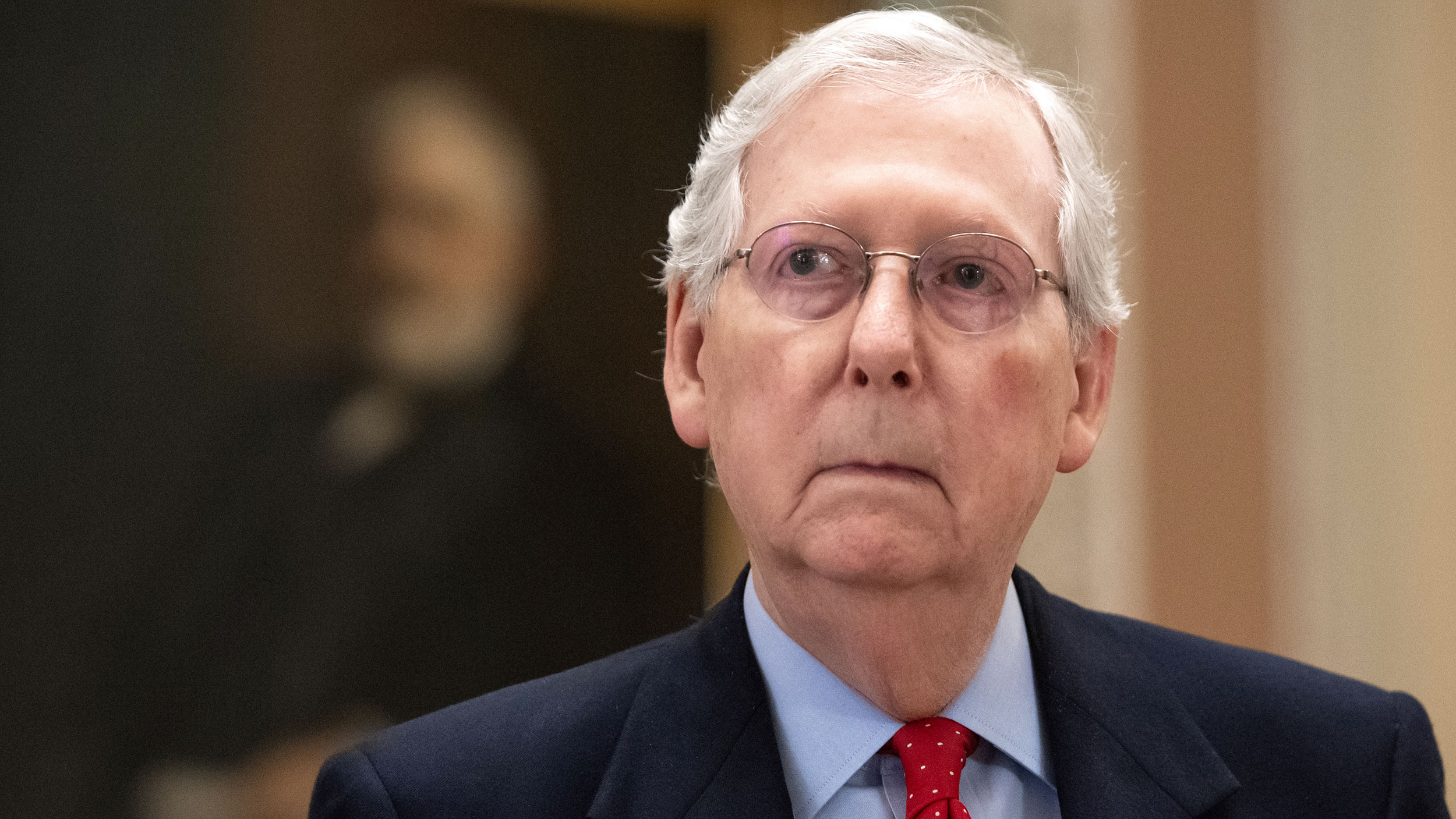 Saul Loeb/AFP/Getty Images
Saul Loeb/AFP/Getty ImagesIn a message to GOP senators late Friday, Senate Majority Leader Mitch McConnell urged his colleagues not to lock themselves into a position they may later regret and counseled them to be cautious about what they are telling the media about their views on how to process the nomination, according to a person who saw the note.
He urges them to "keep your powder dry."
McConnell doesn't indicate a timeframe for considering the nomination but makes clear he believes there's enough time to take up the nominee this year.
Here's what happened when Senate Republicans refused to vote on Merrick Garland's Supreme Court nomination in 2016
From CNN's Eric Bradner
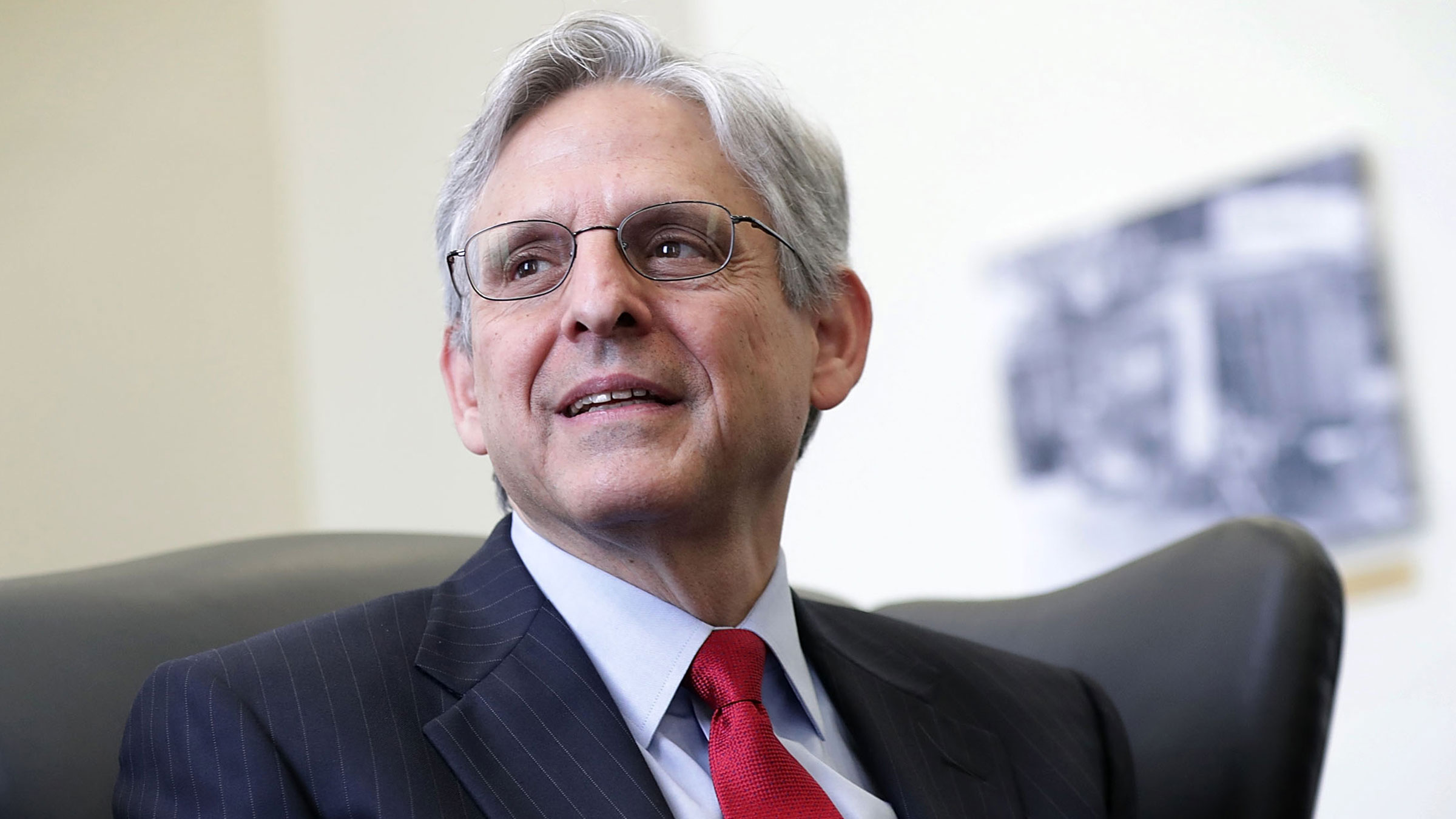 Alex Wong/Getty Images
Alex Wong/Getty ImagesThe death of US Supreme Court Justice Ruth Bader Ginsburg less than two months from the presidential election has forced a reexamination of Republicans' 11-month blockade of Merrick Garland in 2016.
Justice Antonin Scalia, who had been a conservative stalwart on the Supreme Court since being nominated by then-President Ronald Reagan in 1986, died on February 13, 2016.
Within hours -- as other senators were offering condolences to Scalia's family -- Senate Majority Leader Mitch McConnell issued a stunning, categorical rejection of then-President Barack Obama's authority more than 11 months before the Democrat's replacement would be sworn into office.
"The American people should have a voice in the selection of their next Supreme Court Justice. Therefore, this vacancy should not be filled until we have a new president," McConnell said.
Four years later, McConnell said in a Friday night statement that President Donald Trump's nominee to replace Ginsburg will get a vote in the Senate. Doing so would be a complete reversal of his position in 2016, when the GOP-led Senate refused to hold a hearing or vote on Obama's nominee, saying it was too close to the election.
Read more here:
White House prepared to move "very quickly" on replacement once Trump signals intention
From CNN's Kevin Liptak and Kaitlan Collins
The White House is prepared to move “very quickly” on putting forward a nominee to replace US Supreme Court Justice Ruth Bader Ginsburg once President Donald Trump signals his intentions, a senior administration official says.
Officials feel confident in their ability to shepherd a potential nominee through the process on a condensed timeline, and say they will now await Trump’s signal on how to proceed.
The official said the process will be based in the Counsel’s office, led by Pat Cipollone, though it is expected chief of staff Mark Meadows will be heavily involved on Capitol Hill.
The official said several potential nominees have been through at least some type of vetting given the previous vacancies and the list Trump produced earlier this month, which could help expedite the process.
An additional official said the campaign and White House had planned to put out a short list of candidates to fill a vacancy should one become available before the election. Ginsburg's passing has altered that planning, but shows the White House was already paring down candidates and making a shorter list.
Opinion: Filling RBG's seat now could break American democracy
From Joshua A. Douglas
Editor's note: Joshua A. Douglas is a law professor at the University of Kentucky J. David Rosenberg College of Law. The views expressed in this commentary are his own.
While a law student at the University of Kentucky, the institution where I teach, Senator Mitch McConnell surely learned about the importance of justice and democracy. In the wake of Justice Ruth Bader Ginsburg's passing on Friday evening, there is one action that McConnell can take that may very well save our democracy: announce that the Senate will not consider a Supreme Court nomination until after Inauguration Day 2021.
Ginsburg was a trailblazer in many ways: for women's equality, voting rights, and so much more. Her passing leaves an amazing legacy.
But it also unfortunately occurred with only 46 days until Election Day, when the politics of the moment could not be more vitriolic. Within minutes of her passing, people were speculating as to whether Donald Trump would nominate a new justice and whether the Republican-controlled Senate would confirm someone before the next presidency.
Ginsburg herself made her wishes known as her dying declaration: "My most fervent wish is that I will not be replaced until a new president is installed."
Any other path, except for announcing a public pause to defuse the situation, would be extremely dangerous for democracy.
Read more here:
Ginsburg's death means Republican senators will face the ultimate test of their loyalty to Trump
Analysis by CNN's Chris Cillizza
The death of Supreme Court Justice Ruth Bader Ginsburg on Friday -- followed by Senate Majority Leader Mitch McConnell's statement that "Trump's nominee will receive a vote on the floor of the United States Senate" -- creates a stark choice for the 52 GOP senators that boils down to this: Just how loyal are you to President Donald Trump?
Republicans face the very real possibility of losing both the White House and their Senate majority in November. Ginsburg's death creates what many conservatives view as a once-in-a-generation opportunity to move the makeup of the court from its current lineup of five conservative justices to four liberal justices to a more dominant 6-3 majority. And for Trump to appoint a third young justice -- both Neil Gorsuch and Brett Kavanaugh are under 60 -- who could help serve as the conservative foundation of the court for decades to come.
The countervailing force against all of that is tradition, the weight of history and just how much a senator's past statements actually matter.
Read more here:
Trump: "Today, our nation mourns the loss of a titan of the law"
From CNN's Jim Acosta and Paul LeBlanc
 Saul Loeb/AFP/Getty Images
Saul Loeb/AFP/Getty ImagesPresident Trump tweeted the following statement on the passing of Supreme Court Justice Ruth Bader Ginsburg:
Trump's first comments on Ginsburg's death came after a rally in Minnesota on Friday night where he appeared to hear the news for the first time from reporters. "Just died?" he responded, when asked about her death.
"I didn't know that. I just — you're telling me now for the first time. She led an amazing life," Trump said. "What else can you say? She was an amazing woman, whether you agree or not, she was an amazing woman who led an amazing life. I'm actually sad to hear that. I am sad to hear that."

 5 years ago
841
5 years ago
841 